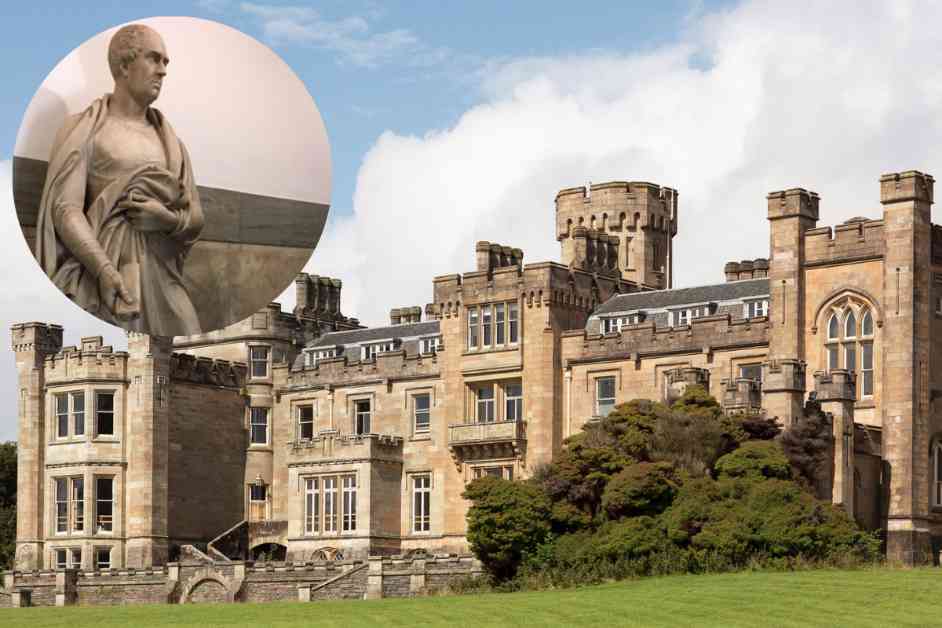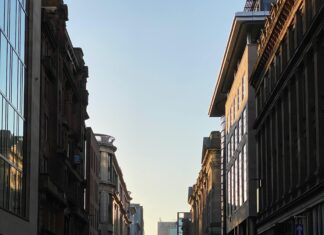Protest Against Glasgow Merchant Profiting from Slavery: A Chilling Reminder of Kirkman Finlay’s Controversial Legacy
Glasgow, Scotland – Kirkman Finlay, a prominent merchant and former Lord Provost of Glasgow, was a man of many accolades and achievements. However, his success was marred by his involvement in the slave trade, which made him a target of protests and criticism during the late 18th and early 19th centuries.
Born in the Gallowgate in 1773, Kirkman Finlay inherited his father’s East India merchant business at a young age. Under his leadership, James Finlay and Company became a major player in the cotton industry, with Finlay pioneering spinning and manufacturing techniques in Scotland. He was also the first British merchant to trade directly with India, importing goods such as tea from Calcutta to Glasgow.
Despite his business success, Finlay’s practices were controversial. The cotton he imported from New Orleans was produced using slave labor on plantations in Southern America, leading to accusations that his profits were directly linked to the exploitation of enslaved people.
Protests and Controversies
Finlay’s stance on political and social issues further fueled public discontent. He was known for opposing voting reform and allegedly using informants to infiltrate radical movements in the city. These actions, coupled with his ties to the slave trade, made him a target of public outrage.
Effigies of Finlay were burned in protest, and his mansion on Queen Street was attacked by mobs, with cavalry having to intervene to prevent its destruction. Despite his wealth and influence, Finlay’s reputation suffered as a result of his unpopular beliefs and business practices.
Legacy and Impact
While Finlay’s contributions to Glasgow’s economic development were significant, his involvement in the slave trade continues to cast a shadow over his legacy. His reluctance to support abolition and calls for compensation for lost profits after slavery was abolished reflect a man more concerned with financial gain than ethical considerations.
Despite his controversial reputation, Finlay remained a prominent figure in Glasgow politics, serving as Lord Provost and Member of Parliament for the Clyde Burghs. He was also respected within business circles, earning accolades for his leadership of the Chamber of Commerce.
After his death in 1842, Finlay’s legacy was commemorated with a statue at the Merchants’ House on Hutcheson Street. However, his connection to the slave trade remains a stain on his reputation, serving as a chilling reminder of the dark history of Glasgow’s merchant class.
In conclusion, Kirkman Finlay’s story is a complex and controversial one, highlighting the intertwined nature of commerce, politics, and morality in the 18th and 19th centuries. While his contributions to Glasgow’s economic growth cannot be denied, his involvement in the slave trade serves as a cautionary tale of the human cost of unchecked ambition and greed. As we reflect on his legacy, it is important to acknowledge the dark chapters of history and strive to learn from them in our ongoing pursuit of justice and equality.















